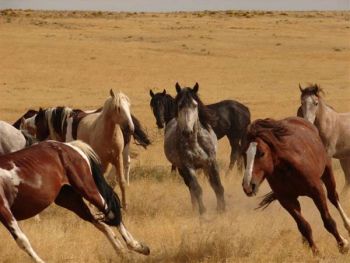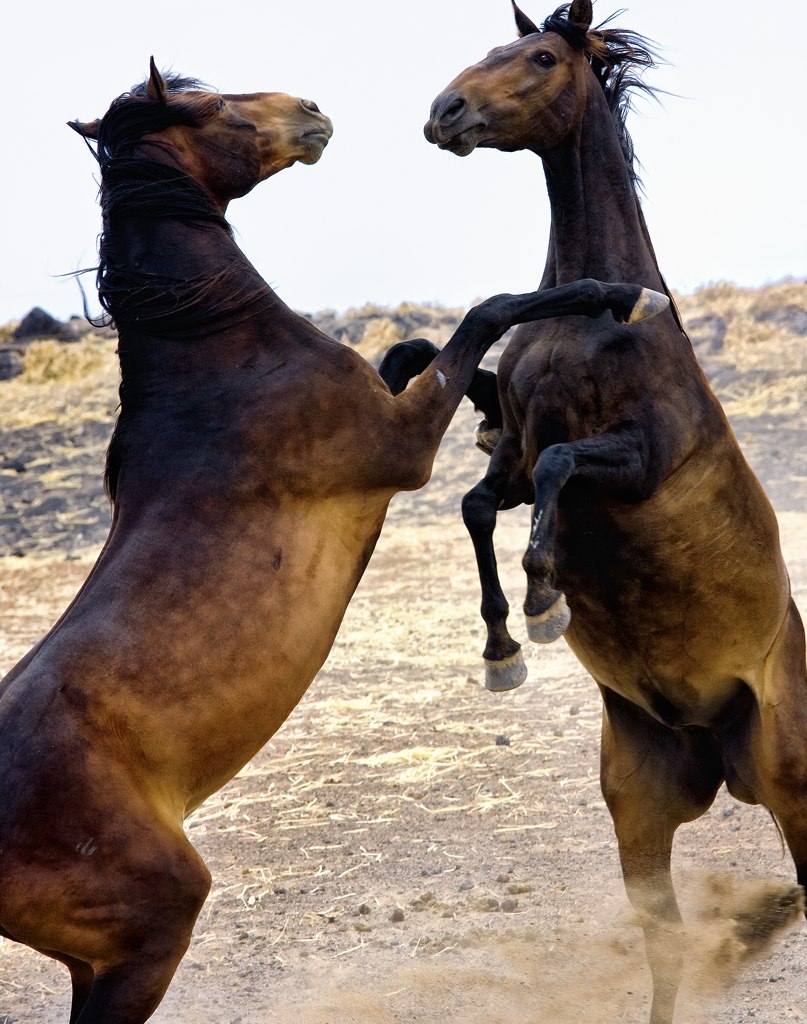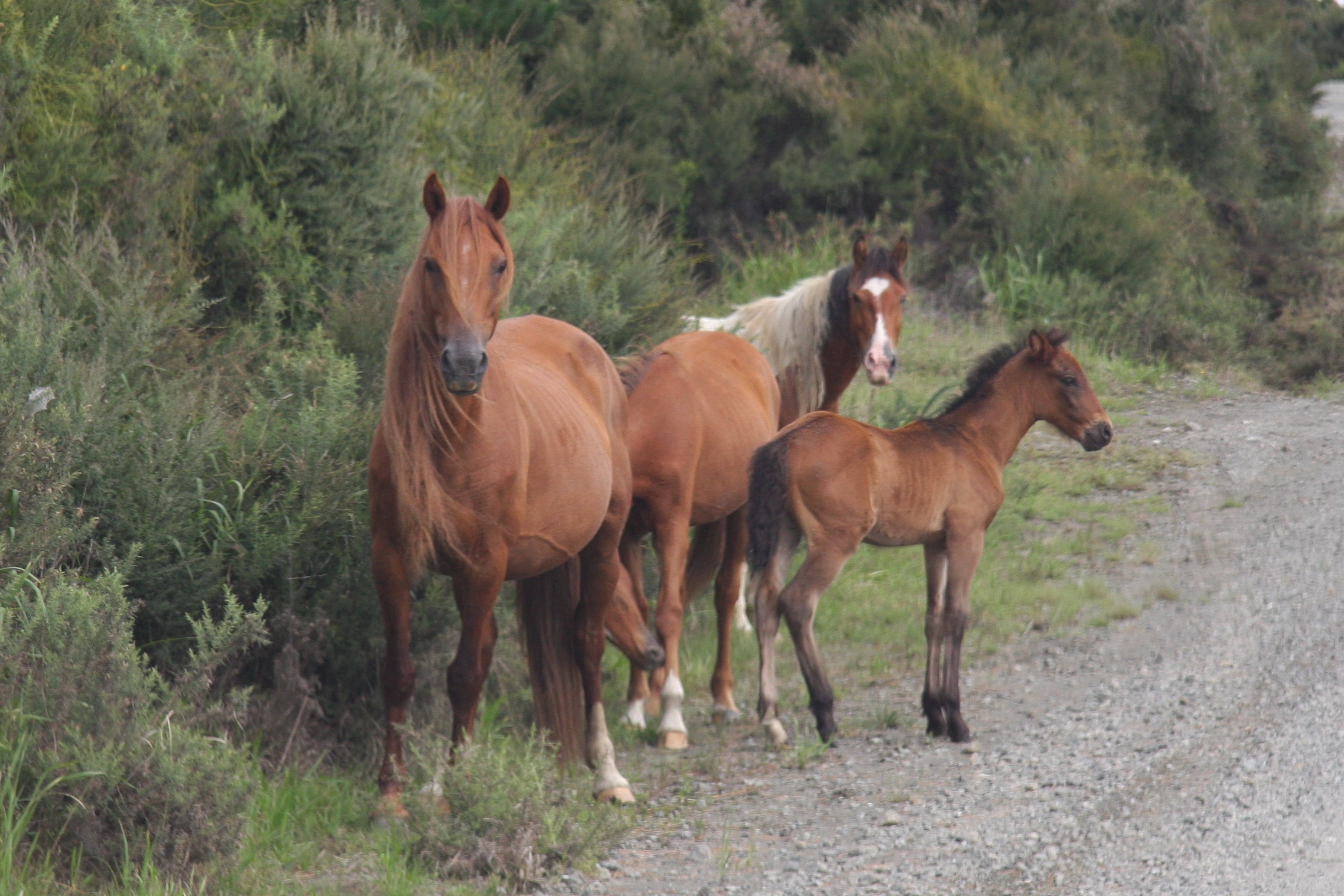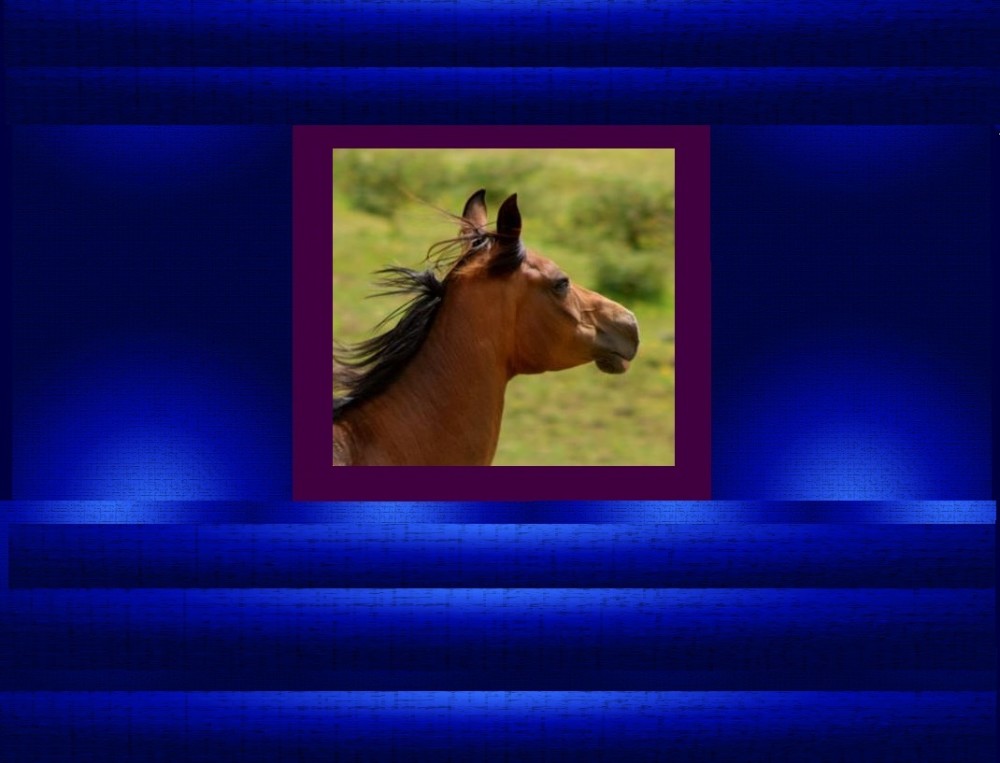Most horse owners would not feel that they are guilty of anthropomorphism when it comes to horses. After all, horses don’t live in our houses with us like cats and dogs, and are too big to sit at our dinner table or to dress up in cute outfits (well, it’s more difficult anyway).

In my opinion, there is another, more subtly distorted view of horses that many owners have. It is related to the popular idea that horses develop a “trust” in their owners and riders, and that this is the basis for having a good relationship with horses, and the foundation for working with and riding horses safely.
This sounds good and is good, at the outset. Horses should trust that we won’t hurt them or intentionally bring them into harm’s way. However, I am not convinced that horses “trust” us in the way that many humans believe they do.

I believe horses trust us in the same way we might trust a good friend. We would trust most of our friends enough to let them drive us somewhere in their car, to give us something that was safe to eat, or to show us a good place to go hiking. But many horse people believe that their horses should (or do) trust them in a different way; they think horses trust in a way that is similar to a small child trusting a parent. In their minds, a horse is similar to a toddler that trusts the parent to catch them if they fall, and to magically keep danger away. They believe that if your horse really trusts you, you will have the ability to lead them through fire, past any type of frightening object, or near any type of danger simply based on the solidity of your relationship.
Why would horses view humans in this way? Does it make sense that an adult horse would have the need or desire to have another creature make decisions about his safety for him? Horses run together from danger, but that’s because they always err on the side of believing that another horse’s alarm might be true. It’s not because they’ve given another horse the ability to decide their fate or that they trust another horse “no matter what.” When I’ve seen horses follow other horses through dangerous situations, it appears to me that it’s not due to a blind trust in the other horse, but more of a belief that “well, he made it through that mud so I will too.” But plenty of times horses will still hesitate and check things out for themselves before going forward.

I think many people have come to believe that their horse has given them this kind of blind parent/child trust, when in reality the horse himself has decided based on his life experiences and/or level of confidence (horses are born with and can develop confident attitudes just as humans do) his general attitude toward new and frightening situations. Doesn’t it seem just a bit arrogant that a person would claim responsibility for a horse that can adjust to new situations and objects that might frighten another horse? “My horse trusts me completely.” Why don’t we throw that same horse into the situation without you or with another person and see how he does? What is it that makes you believe he thinks you will keep him safe? Perhaps he trusts his own judgment and that is why he is so confident.

I have met horses that will respond to a nervous person by becoming more nervous, and that definitely do better with a confident rider or handler. This is a different concept, however, than this idea of a parent-like “trust” that a horse supposedly has in a certain person. These horses are following the instinct of feeling more secure with horses (or handlers) that are behaving as if a situation is safe. This is basic herd mentality and helps keep horses safe…if everyone else is nervous and ready to run, they prepare too. Horses are very tuned into body language, breathing and signs from other animals that might signal imminent danger.
If a person believes that a horse needs to develop a strong trust in them, and that a horse believes his person will keep him safe no matter what the situation, then it will be disappointing and puzzling when the horse at some point ends up following his instincts to keep himself safe. “Why doesn’t my horse trust me? I thought we had a good relationship.” They might even feel that a horse is being “bad” or that they have done something wrong in order to lose their horse’s trust.
Let’s say you have a very good and trusting relationship with another adult friend. Now you’re in a building with that friend, and someone yells that the place is on fire. You can smell the smoke and feel the heat, and you realize that your life is in danger. As a thinking adult, what are you going to do? Will you think, “I really trust my friend. I will do whatever he wants to do.” Or will you trust your own judgment the most in this situation? I believe it is the same with horses. When horses see things that they perceive as potentially life-threatening or dangerous, they will always trust their own judgment first. This does not mean they don’t trust you or have a good relationship with you, any more than it means you don’t trust your friend if you decide to run out of a building that is on fire. But you are not a three year old child anymore than your horse is, so you make your own decisions when it comes to life or death.
Horses that turn and bolt away from a kite flying on the beach do not necessarily have any less trust in their owner than a horse that will stand still and watch the kite. The horse that stands and watches does not believe his life is in danger from the kite, based either on his previous life experiences, his general confident personality, or plain stupidity. If the horse that bolted is exposed to the kite a few times, he may learn that kites are not dangerous to horses, and based on his own judgment may stop running away from kites. An owner that is nervous and afraid that his horse might react to the kite may trigger the horse to run or spook, and a confident owner may help his horse read that a situation is safe. That doesn’t really have to do with “trust” in his owner, but more of a “trust” in his own instincts, which of course he always had to begin with.

Where horse owners come into play in this “trust” relationship is important. We can expose our horses to many situations in order to build confidence in life. We can stay calm and trustworthy so the horse has one less thing to worry about in a situation he views as dangerous. If we panic and behave erratically, the horse will have more difficulty being calm. We can show the horse over time that we will not hurt him, and that he can trust us to communicate with him clearly and consistently.
Viewing horses as they truly are: large prey animals with strong instincts for self-preservation rather than as our wide-eyed, trusting toddlers will help us keep a good perspective on what it is realistic to expect from them. It also will keep us from being emotionally disappointed when they don’t live up to some starry-eyed dream that is only a figment of our imagination. Horses are intelligent and amazing animals with deep souls. It should be enough for us to accept them for who they are rather than trying to twist them into some fantasy that fills an emotional need we have. Horses induce many positive emotions in people. Yet it is a human problem that we tend to use and abuse, twisting things into what they were never meant to be rather than seeing the beauty and harmony already present in horses.

